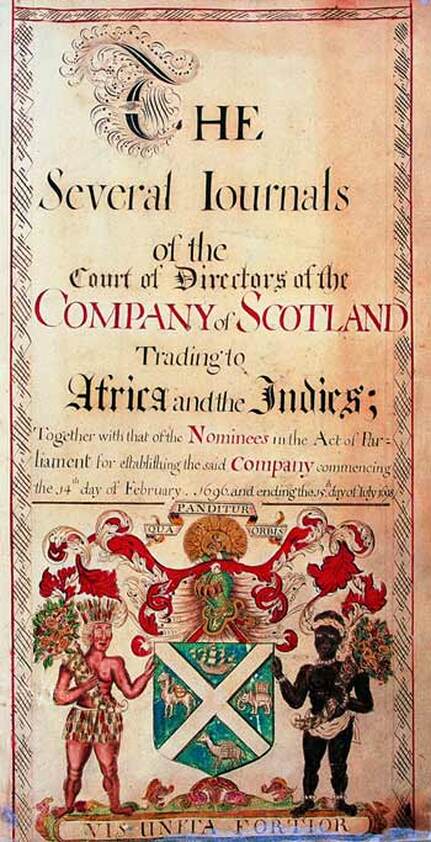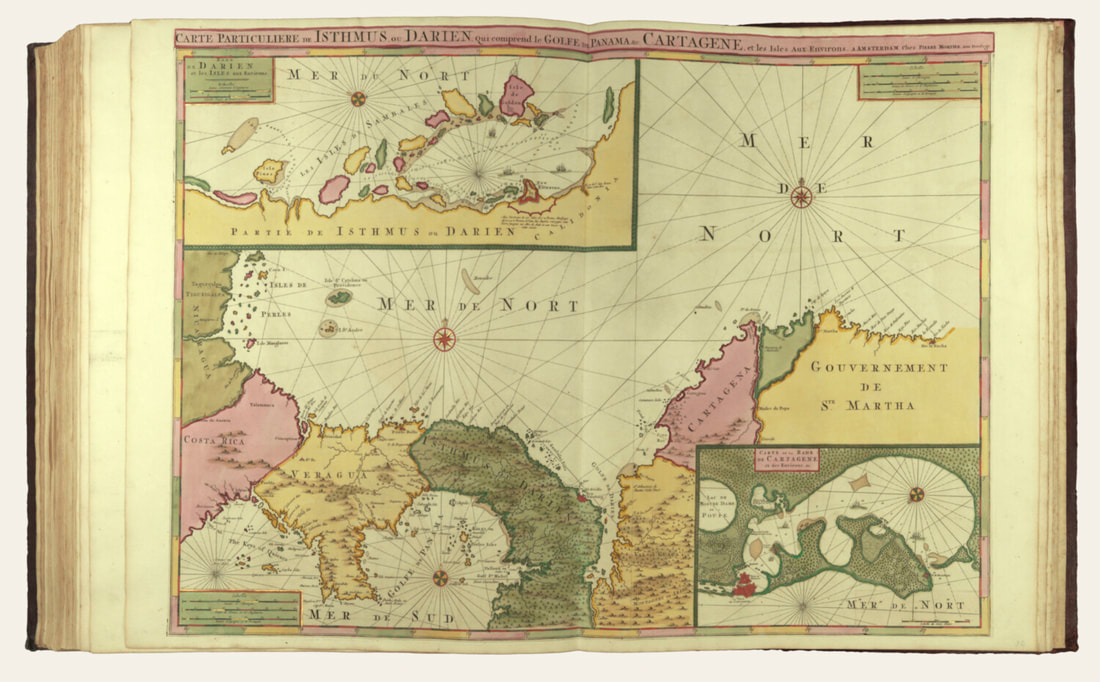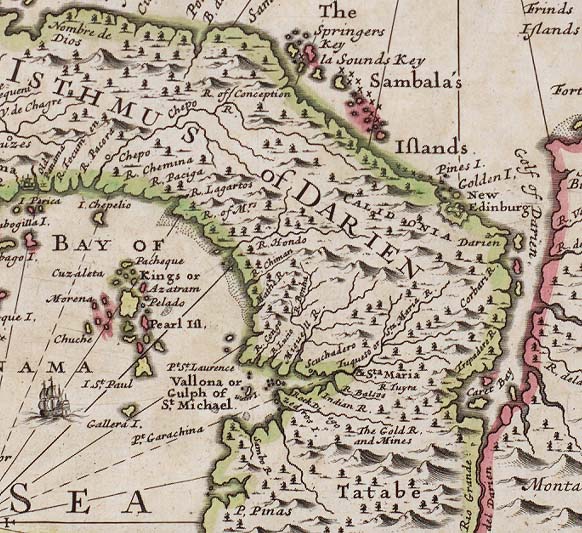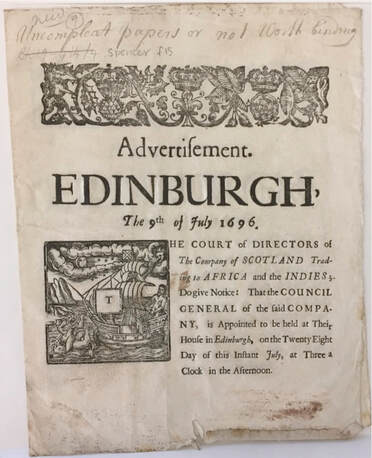From the sands of Culbin
to the swamps of Darien
|
BY the seventeenth century, Scotland was in desperate straits due to famine brought on by seven successive years of crop-failure.
In 1695, the Scots Parliament passed an act establishing a Company of Scotland Trading to Africa and the Indies. Amidst feverish enthusiasm, Scots men and women, burghs, corporations and associations subscribed £400,000 toward the Company, believed to be half the capital of the nation. ‘Trade will increase trade and money will beget money. It was decided to establish a colony at Darien, the most inhospitable and unhealthy part of the Isthmus of Panama. No one involved had ever been there and what information there was about it came from the journals of Lionel Wafer, whose warnings that it was the wettest place in the torrid place were blithely ignored.
|
Ships were bought, built or chartered, warehouses at Leith and Glasgow were filled with a bizarre collection of goods which, it was confidently believed, could be exchanged for the spices, silks and gold of the Orient.
Everyone wanted a share in the glory and the rewards. Alexander Kinnaird last Laird of Culbin was so encouraged by the enthusiasm of his son, William, that he decided to go with him. When William was appointed an ensign in Capt. Telfer's Company, Alexander secured an overseer's commission for himself, perhaps hoping to restore a tarnished name and a broken fortune.
|
Many of the colonists were already dead from flux and fever, and their leaders were inefficient and quarrelsome. The harbour chosen was a trap for vessels that could not sail windward. New Edinburgh was never more than a few huts, and Fort St Andrew were washed away by the pitiless rain Ambition, pride and envy, aggravated by ignorant stupidity, destroyed the spirit of those who survived the killing fevers.
On April 12, 1700, Caledonia was abandoned to the Spanish. In the first week of May, three ships sighted the hills of Jamaica. Two hundred and fifty souls had died on this voyage to Jamaica and in the following two months, with little relief and no credit, another hundred died. |
|
|
|







